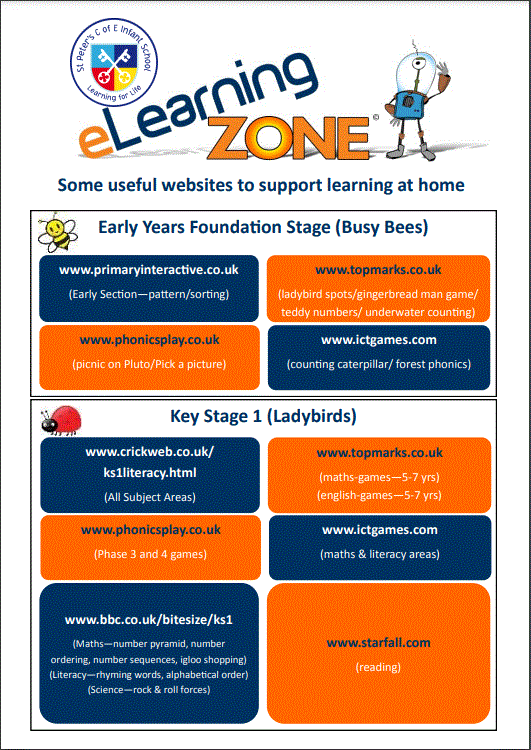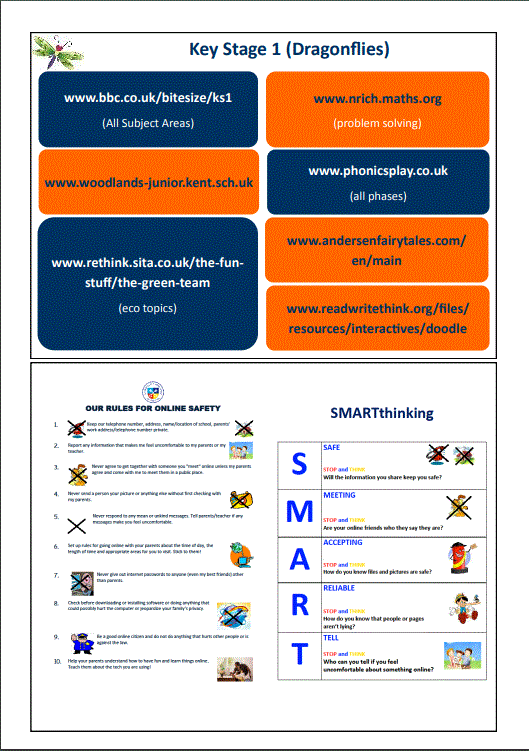

Read with your child for at least 10 minutes a day and record it in his/her reading record. Children who regularly read at home with an adult make more progress than those who do not. Please be guided by your child’s teacher as to targets set and levels at which your child will be working. If your child is reluctant to read please speak to your class teacher so that we can offer suggestions to enhance his/her enjoyment of reading. Explore as many types of reading material as you can – consider comics, magazines and newspapers as well as the traditional storybook.
Busy Bees (Reception)Recommended Reading List
Ladybirds (Year 1) Recommended Reading List
Dragonflies (Year 2) Recommended Reading List
Practise maths challenges and mental maths skills at home which will reinforce strategies taught in class. Incorporate simple maths challenges into every day life as often as you can.
Busy Bees (Reception) Maths Booklet
Ladybirds (Year 1) Maths Booklet
Dragonflies (Year 2) Maths Booklet
Good communication is the gateway to learning, friendships and academic achievement, so it is of vital importance. Children do not talk by accident. They need adults, both in school and at home, to nurture and support their language and communication development.
Being able to listen, pay attention, play and understand are the fundamental building blocks of communication. Parents and adults play an important role in supporting these skills. If a child can’t listen and understand, they will struggle to communicate.
- Try these games at home:
Be sound detectives going on a sound walk to ‘hunt down’ as many different sounds as you can hear. - Play treasure hunt, where you ask your child to find an item to put in the ‘treasure box’ giving the instruction just once. If your child finds this easy, extend to 2 or 3 items.
- Play sound lotto. A fun online animal version can be found at www.phonicsplay.co.uk/resources/phase/1/welcome-to-the-zoo
Top Tips:
Have fun and play around with words, rhymes and songs.
If mistakes are made, echo back correctly so your child can hear how the words should sound.
Use prompts, rather than asking long questions.
Absorb your child in activities and experiences.
Use all 4 senses to learn and remember vocabulary, building in repetition and practice.
The Communication Trust has a wealth of ideas for adults supporting children who struggle to communicate because they have speech, language or communication needs: www.thecommunicationtrust.org.uk
Speech Link’s Parent Portal offers free activities and games for home use, as well as developmental charts to help you decide which activities are for your
child and other useful information and resources: https://speechandlanguage.info/parents
If there is a problem at home or school that could be affecting your child’s happiness, do let us know so we can help support your family. Please speak to your child’s teacher in the first instance.
